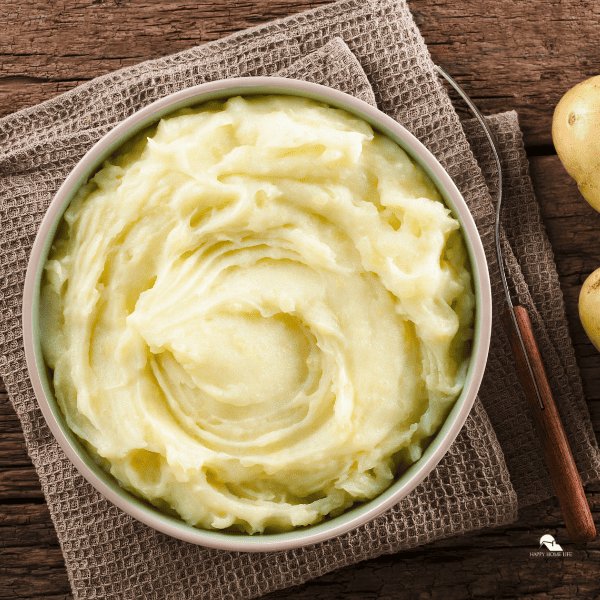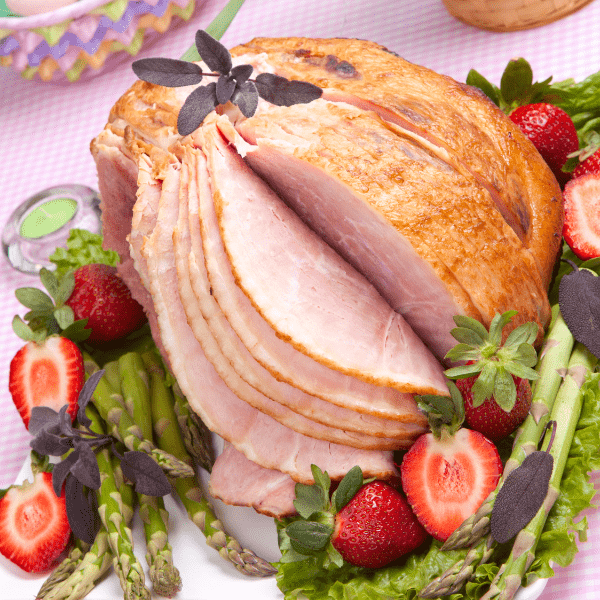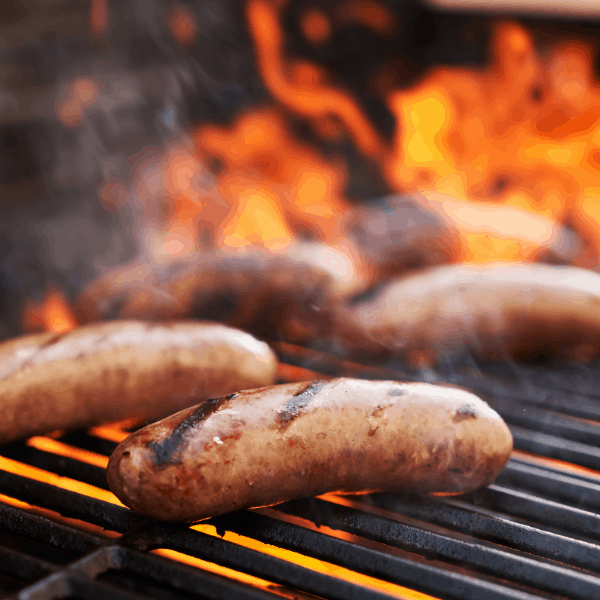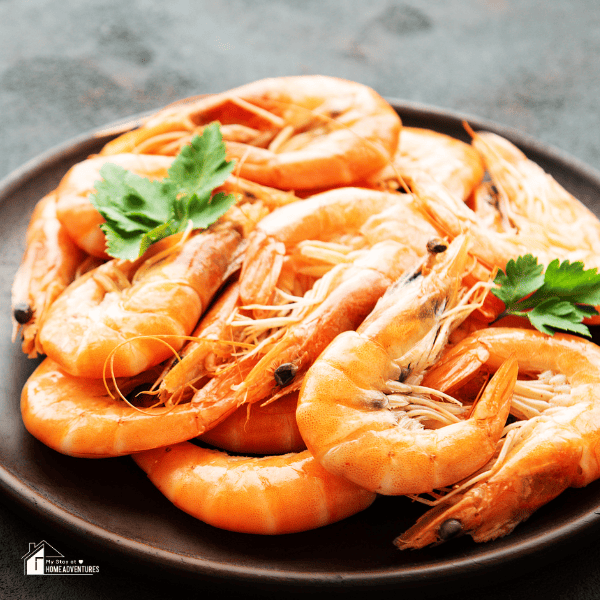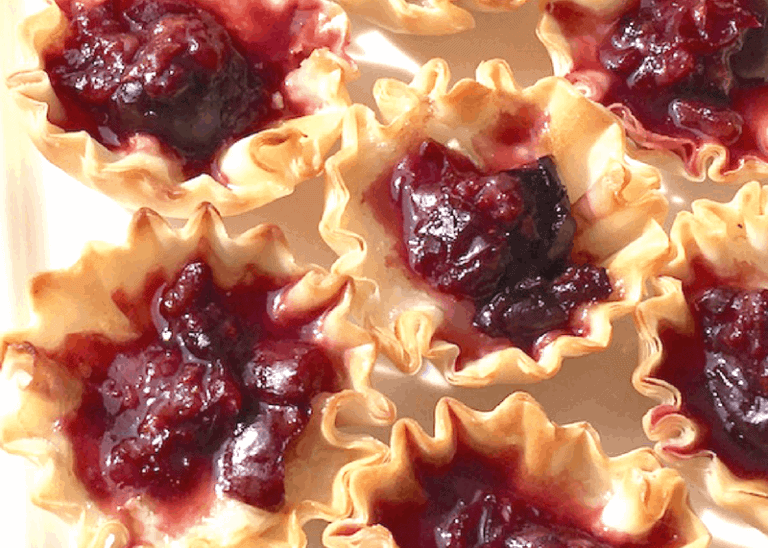When it comes to enjoying the deliciousness of cooked sweet potatoes, you may wonder just how long they will last before going bad. This is especially important since food safety and storage practices play a crucial role in keeping you and your family healthy. Understanding the ideal storage conditions for cooked sweet potatoes can help you enjoy this nutritious and delicious treat for as long as possible.
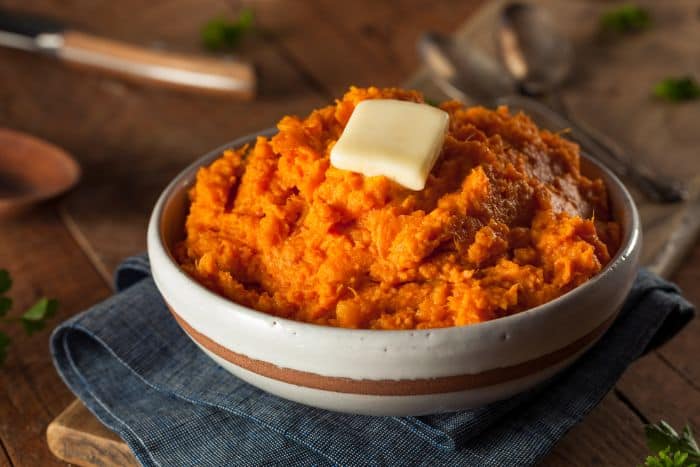
So, how long do cooked sweet potatoes last? Typically, they’re good for 3 to 5 days in the refrigerator when properly stored. To ensure their freshness, it is essential to store them in an airtight container, as this keeps them from attracting undesirable moisture and harmful bacteria. Failing to store cooked sweet potatoes properly can result in a shorter shelf life, which may impact both their taste and your health.
For longer-term storage, freezing cooked sweet potatoes becomes a viable option. When properly stored in the freezer, they can last for up to one year. This opens up the possibility of enjoying their delightful taste and nutritional benefits long after they’ve been cooked, making sweet potatoes a versatile and smart choice for your kitchen.
Check out these sweet potato casserole recipes if you’re looking for ideas on how to cook them!
Shelf Life of Cooked Sweet Potatoes
Properly storing your cooked sweet potatoes can help you maintain their freshness and delicious taste while also preventing the growth of harmful bacteria.
Your cooked spuds will last for 3 to 5 days in the refrigerator. Be sure to store them in an airtight container, as this will prevent the sweet potatoes from attracting undesirable moisture and harmful bacteria. Remember that bacteria can grow rapidly in temperatures between 40°F and 140°F, so keep your sweet potatoes stored in a cool environment.
If you need to store your cooked sweet potatoes for a more extended period, you can freeze them. Frozen cooked sweet potatoes can last up to six months. To freeze your sweet potatoes, allow them to cool entirely, then wrap them in plastic wrap or aluminum foil before placing them in a freezer-safe container or resealable plastic bag.
Here are some storage tips to remember:
- Store your cooked sweet potatoes in an airtight container in the fridge for 3 to 5 days.
- Never leave cooked sweet potatoes at room temperature for more than 2 hours (or 1 hour if the temperature is above 90°F) to avoid bacterial growth.
- Freeze your cooked sweet potatoes for up to six months if you need to store them for a longer time.
By following these recommendations, you can ensure that your cooked sweet potatoes remain fresh, delicious, and safe to consume.
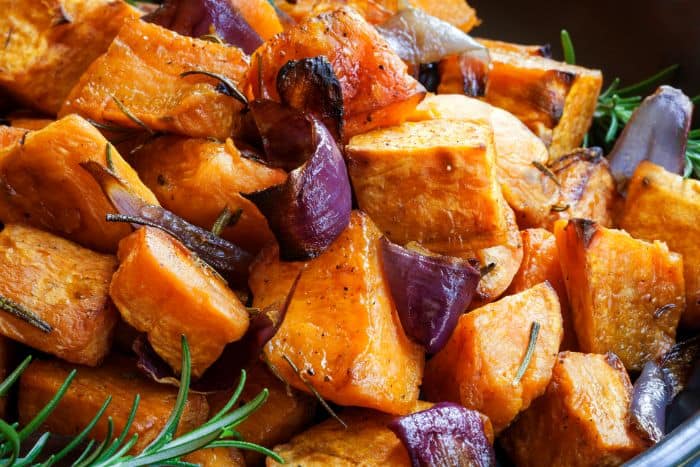
Guidelines for Freezing Sweet Potatoes
Preparation Before Freezing
Before freezing your cooked sweet potatoes, make sure they are cooled down to room temperature. To maintain their taste and texture, you can lightly coat them with lemon juice, which acts as a natural preservative. This will help prevent discoloration and preserve flavor during the freezing process.
Proper Freezing Methods
To effectively freeze cooked sweet potatoes, follow these steps:
- Place the cooled sweet potatoes in heavy-duty freezer bags or airtight containers. Opt for heavy-duty freezer bags as they provide better protection against freezer burn.
- Remove any excess air from the bags or containers before sealing. This will also help prevent freezer burn.
- Label the bags or containers with the date and content information to keep track of their shelf life.
- Place the sweet potatoes in the freezer, ensuring they are not crowded or pressed against other items. This will allow them to freeze evenly.
Cooked sweet potatoes can last for up to 10 to 12 months in the freezer. Make sure your freezer maintains a consistent temperature of 0°F (-18°C) or below to maintain their quality.
Thawed Sweet Potatoes and Their Uses
When you’re ready to use your frozen sweet potatoes, it’s crucial to thaw them correctly. Remove the desired number of sweet potatoes from the freezer and leave them in the refrigerator for several hours or overnight. This slow thawing process will help retain their texture and prevent them from getting soggy.
Once thawed, sweet potatoes can be used in various dishes or reheated and consumed in their original form. Heat them in the oven, on the stove, or using a microwave, depending on your preferred method. However, bear in mind that the nutrition content might change slightly due to the freezing and thawing process.
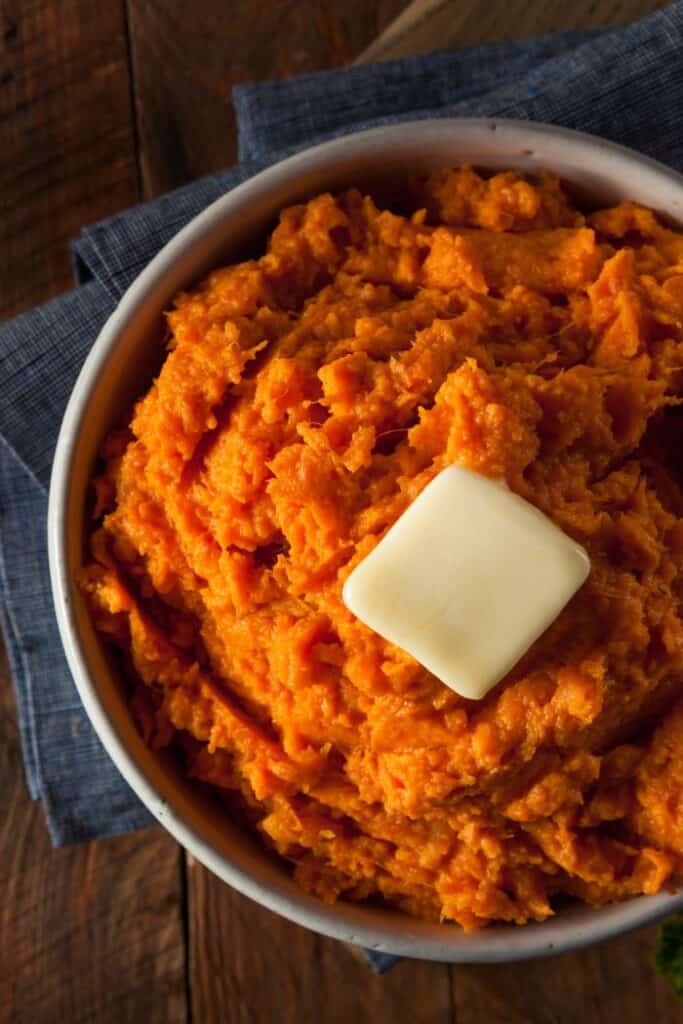
Signs Cooked Sweet Potatoes are Spoiled
When dealing with cooked sweet potatoes, it’s important to know the signs of spoiling, so you can avoid consuming them and getting sick. Here are a few indicators that your cooked sweet potatoes have gone bad:
1. Discoloration: If the color of your cooked sweet potatoes has changed significantly, it’s a sign they are spoiled. The flesh of a fresh sweet potato should be bright orange, but when it starts going bad, it may appear yellowish or purple.
2. Texture: The texture of a cooked sweet potato should be soft, but if it becomes too soft and mushy or even slimy, it is a clear indication that it has spoiled.
3. Odor: A rotten sweet potato will give off an unpleasant, sour smell. If your cooked sweet potatoes have a strong, off-odor, it’s time to discard them.
4. Mold: Mold can grow on sweet potatoes if they are left in a damp environment. If you see any mold growing on your cooked sweet potatoes, they are no longer safe to eat.
To prevent your cooked sweet potatoes from spoiling quickly, it’s essential to store them properly. Cooked sweet potatoes should be kept in an airtight container in the refrigerator, where they can last for 3 to 5 days. Remember to discard cooked sweet potatoes if they have been left at room temperature for more than 2 hours, as bacteria grow rapidly between 40 °F and 140 °F.
By knowing the signs of spoiled cooked sweet potatoes and practicing proper food handling, you can ensure that your meals remain safe and delicious.

